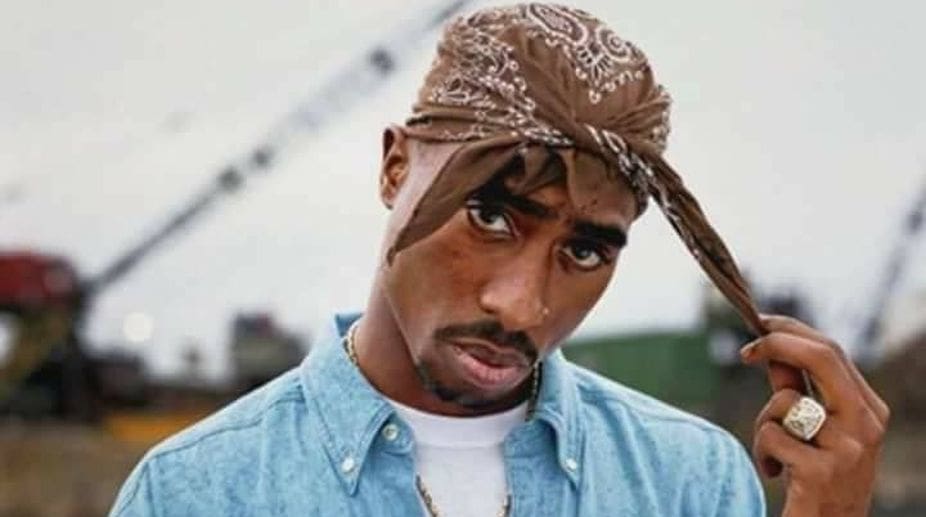
Early Life and Family Background
Tupac Amaru Shakur was born on June 16, 1971, in East Harlem, New York City, to Afeni Shakur and Billy Garland. Initially named Lesane Parish Crooks, he was renamed Tupac Amaru Shakur at the age of one. His first name, “Tupac Amaru,” was inspired by Túpac Amaru II, the last Incan emperor, symbolizing a legacy of resistance and revolution.
His surname, “Shakur,” was adopted from his mother’s second husband, Lumumba Shakur, though he was not his biological father. Afeni Shakur, a former member of the Black Panther Party, was acquitted of over 150 charges in the Panther 21 trial just a month before Tupac’s birth. His biological father, Billy Garland, was also involved in the Black Panther movement but had limited contact with Tupac during his upbringing. Tupac had an older stepbrother, Mopreme “Komani” Shakur, and a half-sister, Sekyiwa Shakur. His stepfather, Mutulu Shakur, was a prominent activist who spent years on the FBI’s Ten Most Wanted list before being imprisoned in 1986 for his role in a 1981 Brinks armored truck robbery.
Education and Early Artistic Influences
In 1986, Tupac and his family relocated to Baltimore, Maryland, where he attended the Baltimore School for the Arts. There, he studied acting, poetry, jazz, and ballet, and befriended future actress Jada Pinkett. Tupac’s artistic talents flourished as he performed in Shakespearean plays and the ballet “The Nutcracker.” He was also known for his rap skills, winning competitions and gaining recognition as one of the school’s best rappers. His diverse musical influences included artists like Kate Bush, Culture Club, Sinéad O’Connor, and U2.
Career Trajectory and Musical Evolution
Early Career and Breakthrough
Tupac’s professional music career began as a backup dancer and rapper for the hip-hop group Digital Underground. His first notable appearance was on the track “Same Song” in 1990. In 1991, he released his debut solo album, 2Pacalypse Now, which addressed social issues such as police brutality, racism, and poverty. The album’s controversial content led to debates about censorship and its impact on youth.
Rise to Prominence
His second album, Strictly 4 My N.I.G.G.A.Z… (1993), showcased his versatility and included hits like “Keep Ya Head Up” and “I Get Around.” These tracks highlighted his ability to blend social commentary with mainstream appeal. In 1994, Tupac’s third album, Me Against the World, was released while he was incarcerated for sexual assault charges. Despite his legal troubles, the album debuted at number one on the Billboard 200 and received critical acclaim. The track “Dear Mama,” a heartfelt tribute to his mother, became one of his most beloved songs.
All Eyez on Me and Death Row Records
After serving eight months in prison, Tupac signed with Death Row Records and released All Eyez on Me (1996), a double album that became a landmark in hip-hop history. The album debuted at number one on the Billboard 200, selling over 566,000 copies in its first week, and was certified Diamond by the RIAA in 2014. It featured hits like “California Love” and “How Do U Want It,” showcasing his dynamic style and collaboration with artists like Dr. Dre and Snoop Dogg.
Posthumous Releases
Following Tupac’s untimely death in 1996, several posthumous albums were released, including The Don Killuminati: The 7 Day Theory (1996), released under the alias Makaveli. The album debuted at number one on the Billboard 200 and featured the singles “Hail Mary” and “To Live & Die in L.A.” Other posthumous albums include R U Still Down? (Remember Me) (1997), Still I Rise (1999, with Outlawz), Until the End of Time (2001), Better Dayz (2002), Loyal to the Game (2004), and Pac’s Life (2006). These albums continued to achieve commercial success, with several reaching the top of the Billboard charts and earning multiple platinum certifications.
Notable Achievements and Awards
- Grammy Nominations: Tupac received multiple Grammy nominations throughout his career, including Best Rap Album for Me Against the World and Best Rap Solo Performance for “Dear Mama.”
- American Music Awards: In 1997, he won the award for Favorite Rap/Hip-Hop Artist posthumously.
- Soul Train Music Award: All Eyez on Me won Rap Album of the Year in 1997.
- Rock and Roll Hall of Fame: In 2017, Tupac was posthumously inducted into the Rock and Roll Hall of Fame, with Snoop Dogg presenting him as “the greatest rapper of all time.” The ceremony included a tribute performance featuring Alicia Keys, Snoop Dogg, YG, and T.I., covering some of Tupac’s iconic songs such as “I Get Around,” “Dear Mama,” “Changes,” “Gangsta Shit,” “Hail Mary,” and “Keep Ya Head Up.”





